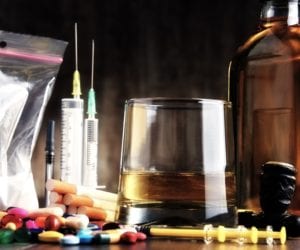Most Addictive Drugs List

Learn about the most addictive prescription drugs and how rehab can help at WhiteSands Treatment Center
With substance abuse and addiction waging war on many Americans, we have to ask ourselves, what are the most addictive drugs affecting our society? In our effort to help those already addicted to substances, we have to understand what drugs they are taking and how these drugs affect them. By raising awareness of the dangers of these drugs, we can help prevent many people from trying them. Here is the most addictive drugs list in the U.S.:
1. Prescription Drugs
So many patients are becoming addicted to their prescription medication because they are abusing the recommended dosage or they are taking the drug for a longer amount of time than what is considered safe. Once patients become addicted to prescription drugs and they can no longer get a prescription from their doctor, they will turn to street dealers. Because prescription drug addiction bleeds over into the illicit drug market, we have to ask yourself what are the most addictive prescription drugs? The answer is prescription opioid, stimulant and depressant medications, which accounts for about 45% of overdose deaths in the U.S. The National Institute on Drug Abuse (NIDA) reports that:
- 1 million Americans abuse opioid painkillers annually
- 2 million Americans abuse depressants annually
- 1 million Americans abuse stimulants annually
The problem is widespread from young adolescents to senior citizens, and the adverse effects of these prescription medications can include:
- Respiratory depression, heart attack, stroke, tremors
- Panic attacks, hallucinations, paranoia, psychosis, bizarre or violent behavior, depression, suicide
- Brain and liver damage, urticaria, blackouts
- Convulsions, seizures, overdose, death
2. Cocaine
Cocaine is a stimulant drug that floods the brain with dopamine, creating intense feelings of pleasure and euphoria, and blocks the feeling of pain. The drug is highly addictive and is most popular among young adults aged eighteen to twenty-five. Cocaine addiction can cause irreversible damage to a person’s physical and mental health and create a host of adverse health effects such as:
- Hyperactivity, hyperthermia, talkativeness, shaking, twitching, tics, fatigue
- Paranoia, hallucinations, bizarre or violent behavior, ADHD, mental disorders, behavioral changes, mood swings,
- Kidney damage, a ruptured aorta, hardening of the arteries, heart muscle damage,
- Parkinson’s disease, malnourishment, a weakened immune system, brain damage
3. Heroin
Heroin is a potent opioid drug and addiction to this drug has reached epidemic proportions in the U.S. Some patients who became addicted to opioid painkillers began using heroin when they could not obtain another prescription for their medication. Heroin is one of the hardest drugs to quit. Some possible side effects of heroin abuse involve:
- Stomach cramps, constipation, jaundice, weight loss, tooth decay, gum disease
- Collapsed veins, abscesses, paralysis, muscle weakness,
- Liver or kidney disease, pneumonia, lung disease, chronic fatigue,
- Pre-frontal cortex impairment, depression, memory loss, neurotransmission impairment
- Infection of the heart lining and valves, arthritis, tuberculosis,
4. Barbiturates
Barbiturates are central nervous system depressants that are used to treat convulsions and anxiety. Barbiturates are among some of the most addictive prescription drugs and can be bought in the illicit market. Long-term abuse of barbiturates can cause many adverse symptoms which include:
- Fatigue, sedation, slurred speech, impaired coordination
- Anger, mood swings, violent outbursts, depression, self-injury,
- Executive function impairment, non-compliance, respiratory depression, memory impairment
Withdrawal from barbiturates can cause life-threatening health complications and the addict should never try to stop using them on his own. He should receive help from addiction specialists who are experienced in barbiturate addiction and withdrawal.
5. Alcohol
Many Americans, from adolescents to the elderly, abuse or are addicted to alcohol, and it is considered another one of the hardest drugs to quit. Alcohol addiction is linked to many diseases and can wreak havoc on the alcoholic’s mental and physical health. Some of the adverse symptoms of alcohol addiction are:
- Heart attack, stroke, heart muscle weakness and failure, blood clots, atrial and ventricular fibrillation, high blood pressure
- Memory loss, dementia, depression, blackouts
- Liver disease, suppressed immune system, pancreatitis, nerve damage, kidney disease
These are five substances that make up the most addictive drugs list. If you are abusing any of these substances you need to be aware of the dangers, and get professional help to stop using.
If you or a loved one needs help with abuse and/or treatment, please call the WhiteSands Treatment at (877) 855-3470. Our addiction specialists can assess your recovery needs and help you get the addiction treatment that provides the best chance for your long-term recovery.
